Senior Scientists
Cameron C. Lee, Ph.D. | PI & Lab Director
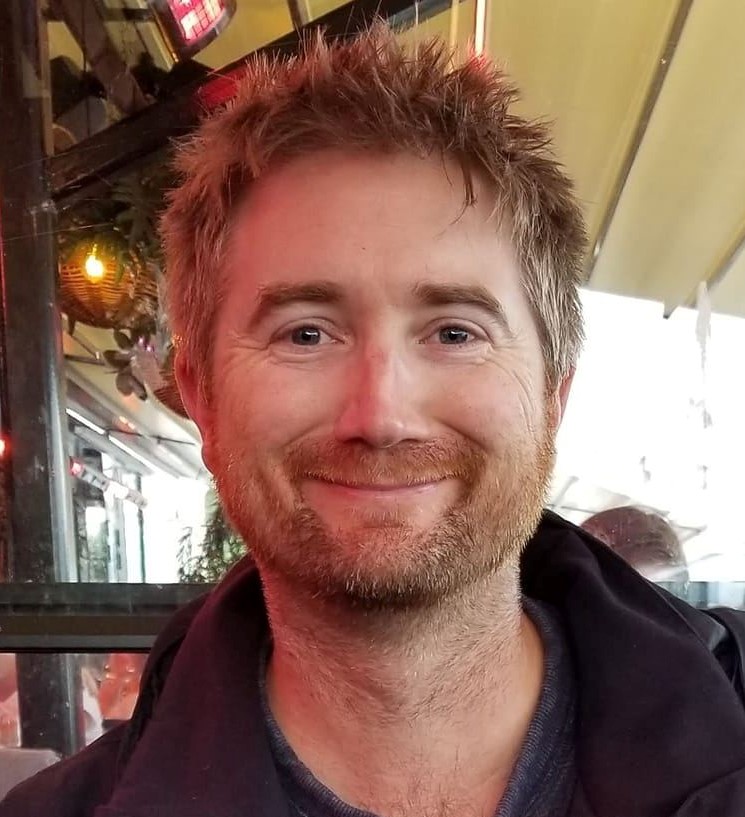
Dr. Lee is the Principal Investigator (PI) and Director of the ClimRISE Lab. He is an Associate Professor in the Department of Geography at Kent State University, as well as a faculty member in the Environmental Science and Design Research Institute at the university. He received his Ph.D. in Geography from Kent State in 2014, with a specialization in Climate Science. His main research interests are in Climate Change, Applied Climatology and Synoptic Climatology. Current applications in these areas include day-to-day sea-level variability, extreme temperature event trends, temperature-related human health, non-traditional indicators of climate change, and severe weather. Dr. Lee is the developer of the Gridded Weather Typing Classification (GWTC2) – a daily-scale air mass classification for the entire globe. Since 2010, Dr. Lee has authored or co-authored nearly 60 articles in peer-reviewed scientific journals, including five review articles on the topic of synoptic climatology, and has been awarded over $2.1 million in extramural funding as PI or Co-I on various research projects.
In addition to his research, Dr. Lee also teaches a class every semester on Global Climate Change, along with courses on Applied Climate Science, Meteorology, and Physical Geography as needed. He has reviewed grant proposals for the National Science Foundation, served as a peer-reviewer for many academic journals, and has presented research at dozens of national and international climate and geography conferences. He is the coordinator of the minor in Climate Change at Kent State, and currently serves as the Managing Editor for the International Journal of Biometeorology, and as an Associate Editor for the Journal of Applied Meteorology and Climatology. Dr. Lee is also the Chair of the Climate Specialty Group of the American Association of Geographers.
Dr. Lee lives in Hudson, Ohio with his wife, two daughters, and his dog. Trying to do their part to combat climate change, the Lees are proud owners of two electric vehicles – along with a 10kW solar panel array to power them both. During his undergraduate years, he played hockey for Kent State (1999-2003). He is a huge Nebraska Cornhuskers football fan, along with cheering for the Cleveland Guardians.
Scott C. Sheridan, Ph.D. | Professor & Associate Provost
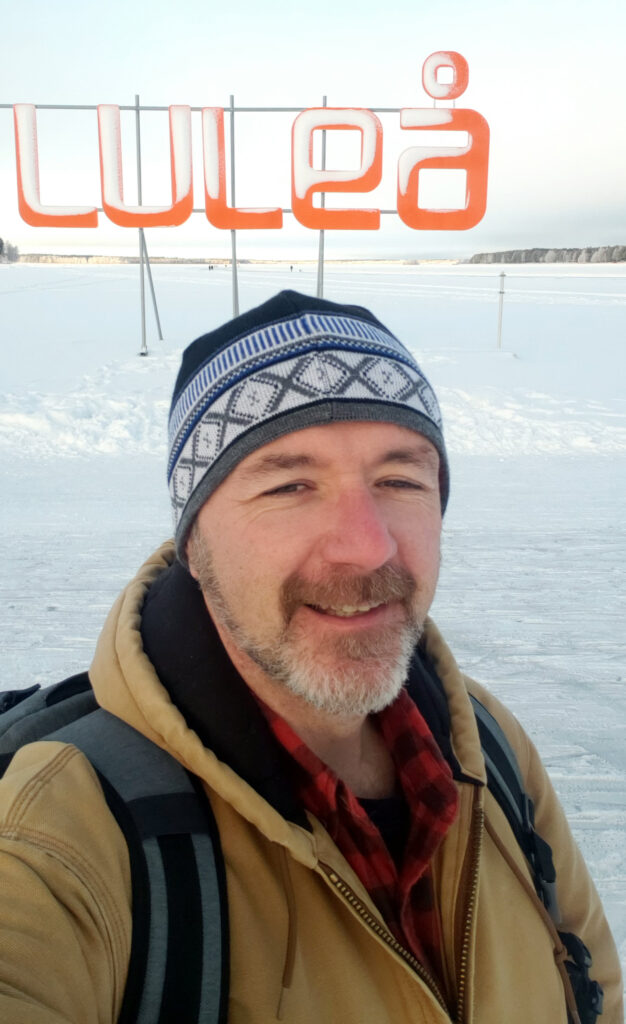
Dr. Scott Sheridan is a professor in the Department of Geography at Kent State University in Ohio, USA. He has served as Department Chair since 2015, and currently is an AGU Landing Fellow. He also sits on the University’s Diversity, Equity and Inclusion Leadership Council; and its Anti-Racism Task Force. His is educational background includes BS and MS degrees in Meteorology from Rutgers and Texas A&M, respectively, followed by a Ph.D. in Climatology from the University of Delaware. He has co-authored 124 peer-reviewed publications, and has been an investigator on grants totaling over $4 million. He is also currently Editor-in-Chief of the International Journal of Biometeorology and Associate Editor of Science of the Total Environment.
Dr. Sheridan’ scholarship focuses on the areas of Applied Climatology and Human Biometeorology. His applied climatology expertise stems from his development and implementation of novel techniques in synoptic climatology, a method in which atmospheric parameters are categorized into discrete categories. This applied research has focused most substantially on human biometeorology, in particular, the impacts of extreme heat on human health. He has worked extensively on heat warning systems, heat perception, urbanization and heat vulnerability, and trends and projections of heat-related mortality. Further, he has focused on applying synoptic climatological techniques to global change issues, including analyses of atmospheric teleconnections and their impact on mid-latitude weather, water clarity, as well as sea-level variability. Scott frequently involves his students in his research and encourages their professional development and publishing. He has graduated 10 PhD and 12 MA students.
Scott Rudlosky, Ph.D. | NOAA Collaborator
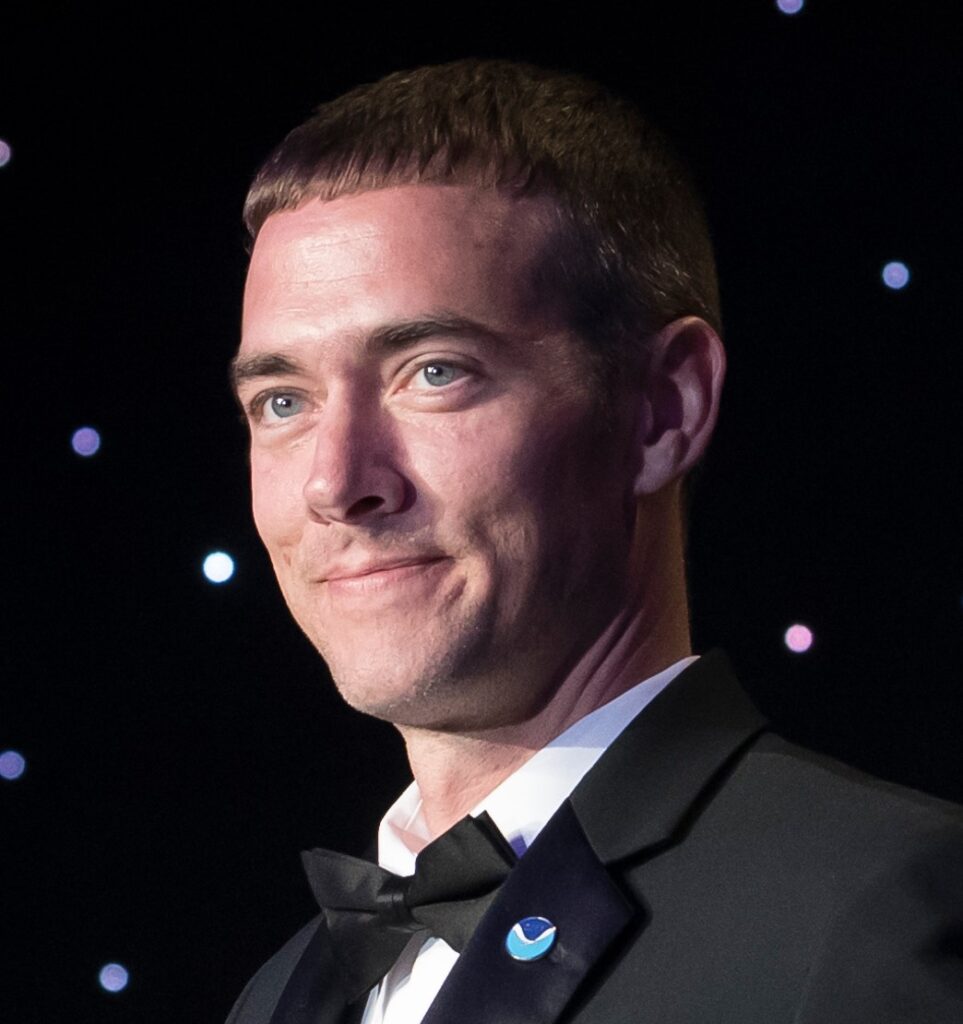
Dr. Scott Rudlosky is a Physical Scientist with the National Oceanic and Atmospheric Administration (NOAA) co-located with the Cooperative Institute for Satellite Earth System Studies (CISESS) in College Park, Maryland. Dr. Rudlosky graduated from Ohio State University in 2004 and presently has an affiliate appointment at Kent State University. His research has focused on the Geostationary Lightning Mapper (GLM) since NOAA began supporting his doctoral work at Florida State University in 2007. He serves as the National Environmental Satellite, Data, and Information Service (NESDIS) subject matter expert on lightning and GLM science lead. Scott was awarded the prestigious NOAA David Johnson Award in 2018 and both the Department of Commerce Silver Medal and NOAA Administrator’s Awards in 2020. He taught a course on mesoscale meteorology for 5 years at the University of Maryland, and has mentored dozens of scholars at various stages of their high school, undergraduate, graduate, and/or postgraduate studies.
Postdoctoral Scholars
Doctoral Students
Omon Obarein | Ph.D. Candidate (ABD)
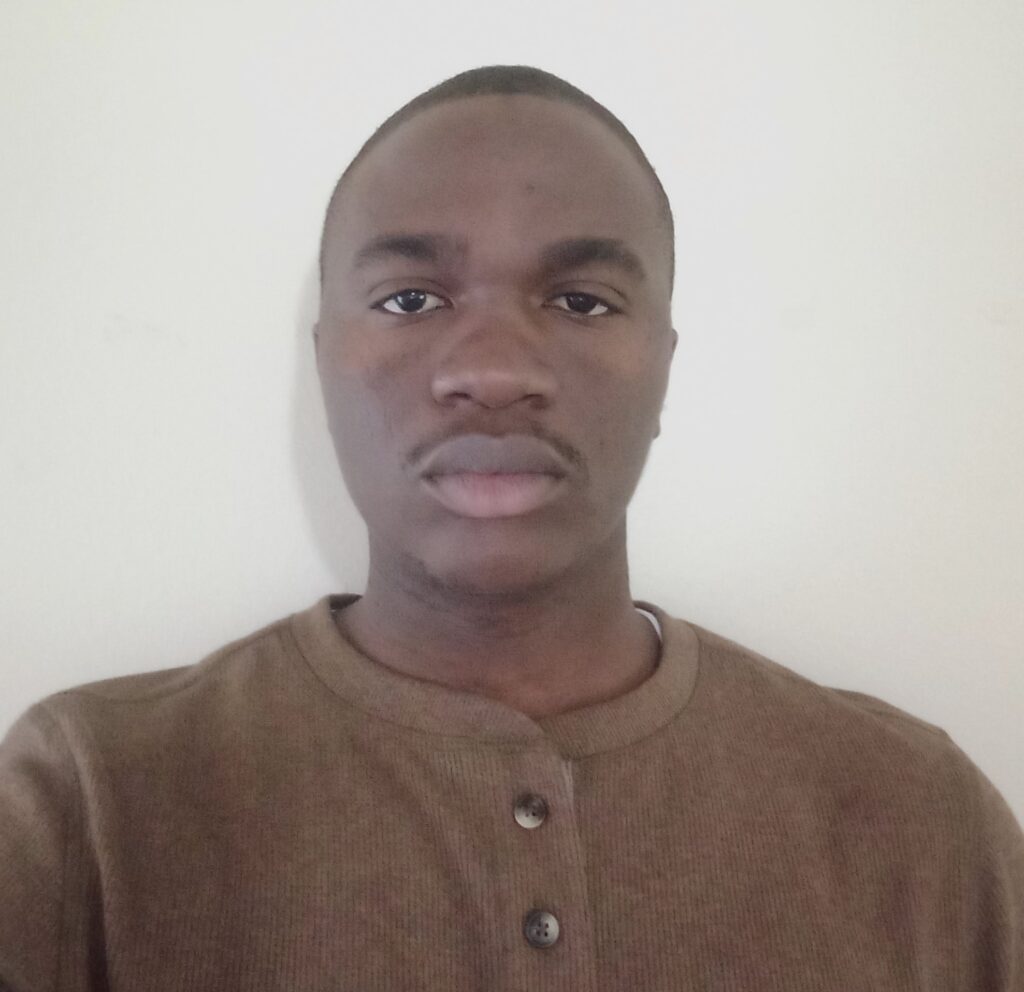
Omon is a 5th-year Doctoral Student in the Department of Geography at Kent State University. He holds a Master of Science in geography from the University of Ibadan, Nigeria, and earned a Master of Arts in geography from Kent State University in 2020. His current research focus is at the junction of two almost independent subfields of climate science, where he has done some work: tropical and synoptic climatology. With tropical climatology, he is mainly interested in understanding present and future tropical precipitation variability and change. Synoptic climatology is a much recent interest that stemmed from research assistantship duties in our ClimRISE group. For his doctoral dissertation, he intends to draw upon acquired knowledge in those two subfields by investigating synoptic air mass drivers of precipitation on regional and global scales. Also, Omon is very interested in the broader field of data science, particularly Earth science data analysis using remote sensing techniques, programming languages, and Geographic Information Systems (GIS). He currently teaches a course on physical geography.
Alindomar Silva | Ph.D. Candidate (ABD)
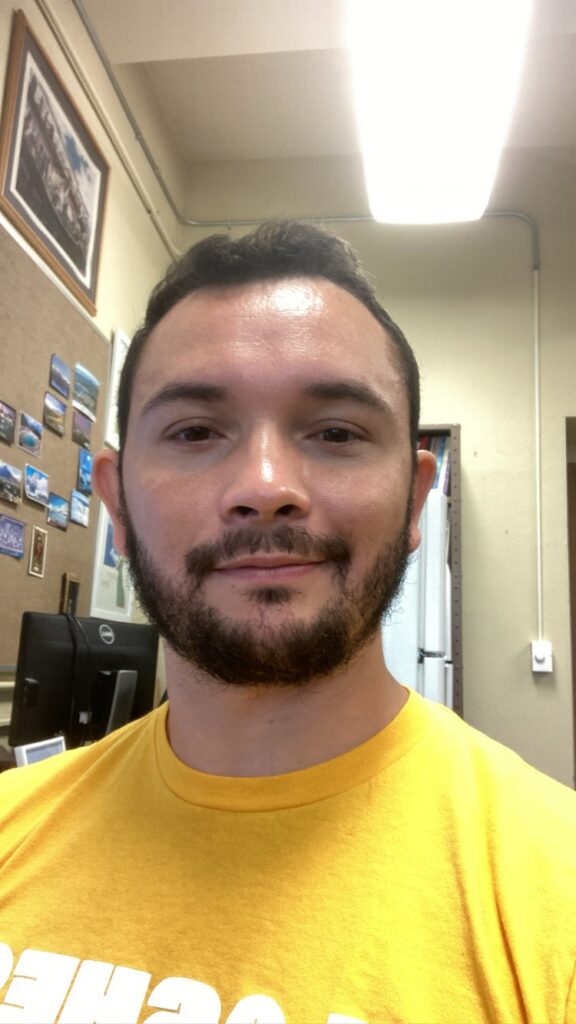
Alindomar is a Ph.D. candidate in the Geography Department at Kent State (class of 2026). He holds a geography degree by the Federal University of São Carlos, Brazil (2010-2016), with an interchange period at Indiana University Bloomington, USA (2013-2014) and a master’s degree in remote sensing by the National Institute for Space Research (2016-2018). His interests lie within the climatology domain, especially extreme events and health (e.g., heat and cold waves and mortality).
For his Ph.D., he wants to make an analysis of heat and cold wave events for cities with different sizes, to see how differently they will be impacted by such extreme events. He would like to draw a comparison between the cities in the US and in Brazil to see how the differences in infrastructure and resilience will impact human mortality. He wants to determine the return period of such events and estimate how many people could lose their lives in the future (considering the AR-6 IPCC report scenarios). Further, he wants to propose mitigation strategies, raise awareness and preparedness to extreme events impacts in Brazil.
He has experience in teaching geography in middle and high school (2011-2013) and English as a second language (2015). After finishing his masters, he worked with urban planning from 2018-2020 and with land use and land cover change monitoring across Brazil from 2020-2021, where he used satellite images to detect deforestation, illegal mining and forest fires.
Currently, Alindomar plays volleyball and is a new member of the Kent State Male Volleyball Club. He is excited for his four years of PhD at Kent State. Once he finishes, he wants to become a Geography Professor and researcher at a higher education institution. He strongly believes in the power of education to change lives.
Seth Rainey | Ph.D. Student
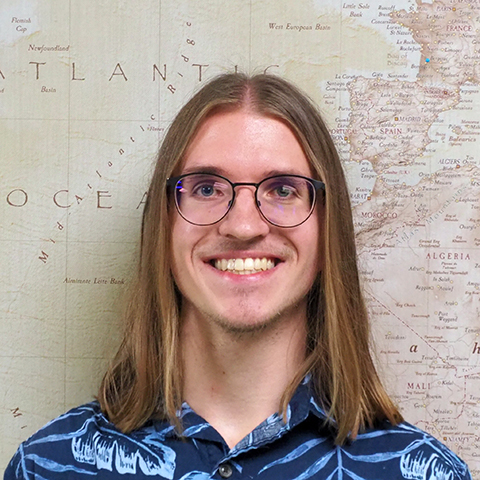
Seth Rainey is a second-year Ph.D. Student. He earned a Bachelor of Arts in Geography from Kent State in 2022 and a M.S. in Geography in 2023. His research focus is on applied climatology with interests ranging from weather and transportation to human-environment interactions. Currently, for his thesis, Seth is investigating the spatiotemporal relationship between lake-effect snow and motor vehicle accidents in Northeast Ohio, specifically looking at the quantifiable differences in the frequency of car crashes over time and space among varying winter season weather types.
Master’s Students
Oluwaferanmi Akinyemi | M.S. Student
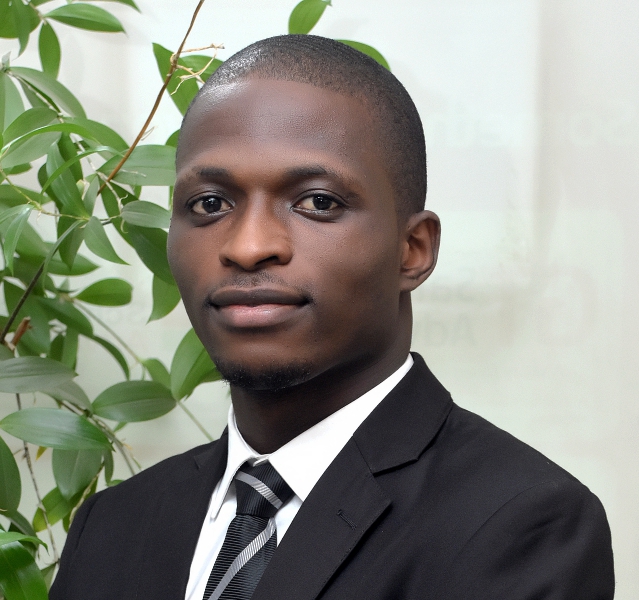
‘Feranmi is a master’s student in the geography department. He earned a Bachelor of Technology in Geography (Meteorology) from the Federal University of Technology, Minna, Nigeria. His undergraduate research focused on aero-meteorology (examining climate extremes and how they affect flight operations).
His current research interests lie around climate change, natural disasters, and disaster risk reduction strategies. He intends to incorporate artificial intelligence (AI) to detect, monitor, predict, and map disaster-prone areas. His research involves applying artificial intelligence (AI) to global natural hazard risk assessment and management, including forecasting extreme weather events, developing hazard maps, detecting events in real-time, providing situational awareness, and assisting in DRR decision-making.
Kaylie Craft | M.S. Student

Kaylie is a second-year Master’s student in the Department of Geography at Kent State University in Fall 2025. They recently completed their Bachelor of Arts in Environmental Studies, with a minor in Geography, in 2024 at Kent State. Their research interests focus on the impacts of sea-level rise on communities and the application of geospatial techniques in this analysis. They are currently exploring potential topics for their thesis.
Matthew Arkwright | M.S. Student

Matthew is a first-year master’s student in the Department of Geography at Kent State University. He completed his undergraduate studies with a Bachelor of Arts in Environmental Studies and a minor in Geography while simultaneously receiving honors cords on a cum laude standing. His current research and interests focus on climate and weather, specifically how climate change is affecting low-pressure systems such as bomb cyclones, and how those adverse effects are affecting both biotic and abiotic components on a synoptic level
